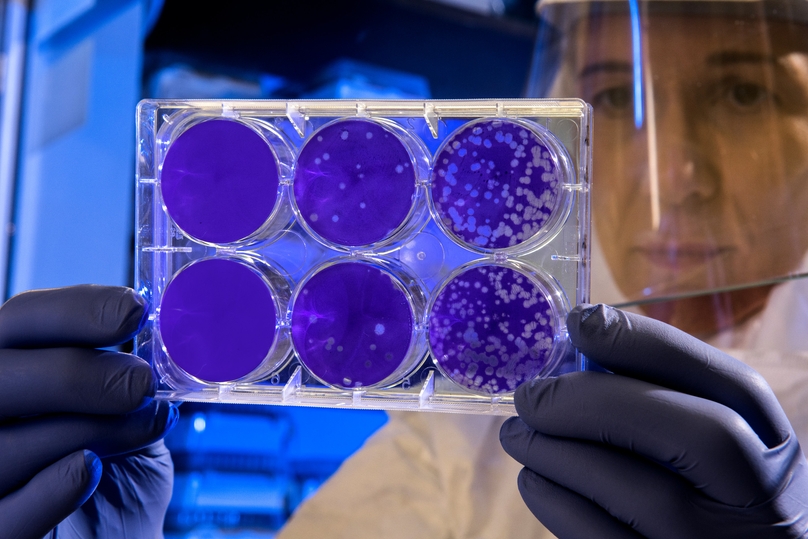In the multifaceted world of biological research and conservation, Animal Colony Management plays an essential role in safeguarding animal welfare and ensuring the validity and reproducibility of scientific studies. With a gamut of applications stretching from medical research to environmental conservation, the precise and ethical management of animal colonies is paramount. It involves intricate processes like controlled breeding, health monitoring, genetic management, and ensuring ethical practices throughout the animals' lifecare. Notably, the integration of laboratory animal science catalyzes advancements in managing colonies, offering innovations in breeding, health management, and welfare assurance.
The Bedrock of Ethical and Effective Management
Ensuring the well-being and ethical treatment of animals within a colony rests on the foundation of proficient management practices. Animal Colony Management intertwines diverse elements like breeding, health, and welfare into a cohesive system that seeks to navigate through the multifaceted aspects of maintaining and managing animal populations. A meticulous approach is pivotal to ensure that every animal within the colony is provided optimal living conditions, adequate medical care, and a life that is as enriching and stress-free as possible.
Breeding Protocols and Genetic Management
Effective breeding management ensures the sustainability of the population, prevents inbreeding, and maintains genetic diversity. Employing strategic mating, segregating populations based on genetic markers, and utilizing biotechnological tools are pivotal to sustaining healthy colonies.
Health and Wellness
Regular health check-ups, nutritional management, and stress mitigation protocols are indispensable for maintaining a thriving animal colony. Adequate veterinary care, habitat sanitation, and disease control measures collectively endorse a stable and healthy environment.
Ethical Considerations and Welfare
In the intricate world of Animal Colony Management, prioritizing the ethical treatment and overall welfare of the animals is paramount. This involves not just attending to their physical needs but also ensuring a quality of life that respects their inherent nature, behaviors, and requirements. Ensuring that ethical guidelines and welfare standards are embedded in every facet of management, from breeding to housing to interaction, is crucial in fostering a humane and respectful environment.
The Symbiotic Relationship with Laboratory Animal Science
Animal colony management serves as a cornerstone in diverse realms, including research, conservation, and breeding programs. With laboratory animal science entering the equation, a symbiotic relationship forms that mutually enriches both fields. The integrative capabilities of laboratory animal science to decipher genetic codes, implement advanced reproductive technologies, and curate precise environmental conditions enhance and refine the strategies employed in managing animal colonies effectively and ethically.
Enhanced Breeding through Technological Advancements
Laboratory animal science introduces technologies like CRISPR and gene editing, which can alleviate genetic issues within colonies. Such technologies facilitate the management of genetic diversity, preventing deleterious mutations and enhancing selective breeding.
Robust Health Monitoring and Disease Management
Integrating diagnostic tools, vaccines, and therapeutics developed through laboratory animal science ensures the prompt identification and management of diseases within colonies, safeguarding them against widespread outbreaks and ensuring vitality.
Implementing Welfare through Scientific Approaches
Scientific methodologies in laboratory animal science pave the way for developing and implementing optimal animal welfare strategies, such as developing pain management protocols and enhancing habitat design to suit the innate behaviors and needs of the animals.
Challenges and Ethical Dilemmas in Integration
Synchronizing technological and scientific advancements with ethical, moral, and practical frameworks presents a nuanced challenge in Animal Colony Management. While enhanced genetic and health management tools offer groundbreaking possibilities for species preservation and study, they also beckon a meticulous examination of ethical boundaries and practical implementability.
Balancing Genetic Intervention and Ethical Boundaries
Within the interplay of Animal Colony Management and laboratory animal science, genetic interventions present a potent tool that offers promising avenues in managing breeding, preventing genetic disorders, and aiding in the conservation of species. However, navigating through the complex landscapes of genetic technologies requires a meticulous approach that balances scientific potentialities with ethical considerations.
Ensuring Equitability in Resource Allocation
The implementation of advanced technologies and methodologies can be resource-intensive. Ensuring that such resources are judiciously used and do not inadvertently de-prioritize other crucial aspects of management necessitates a balanced approach.
Adhering to Ethical and Regulatory Frameworks
Navigating through technological advancements while adhering to ethical guidelines and regulatory frameworks ensures that the integration does not compromise the innate integrity and ethical stances of animal management.
Future Trajectories and Sustainable Practices
The intricacies of Animal Colony Management beckon a future that not only encompasses technological and scientific advancements but also embeds sustainability and ethical practices at its core. With a harmonious blend of laboratory animal science, the potential trajectories in animal management expand exponentially, offering enhanced breeding, health, and welfare management.
Sustainability in Management
Sustainability in Animal Colony Management encapsulates a myriad of practices aimed at minimizing environmental impact, ensuring the well-being of animals, and securing ongoing resource availability. This facet becomes increasingly vital in the modern context, where environmental conservation and sustainable practices are imperative to combat global challenges like climate change and resource depletion. Within the realm of managing animal colonies, sustainability extends through various operational and strategic aspects.
Continuous Evolution and Adaptation
Embracing new technologies and methodologies while concurrently ensuring adaptability to evolving ethical, environmental, and scientific landscapes will be pivotal in the future trajectories of animal colony management.
Ethical Enhancement and Global Collaboration
The evolution of ethical guidelines that universally apply to diverse scenarios and fostering global collaborations for sharing knowledge, technology, and resources can uplift and standardize animal colony management on a global scale.
Animal Colony Management
The convergence of Animal Colony Management and laboratory animal science holds the promise of a future where animal colonies are managed with utmost efficacy, ethical adherence, and scientific rigor. As technologies and methodologies evolve, it is imperative that managers, scientists, and ethicists collectively navigate through the advancements, ensuring that the welfare of the animals and the integrity of the science remain at the forefront. Balancing technological advancements with ethical practices, sustainability, and global collaboration will forge a path where animal colony management not only meets the current needs but also evolves adaptively, addressing future challenges and ethical considerations.


















